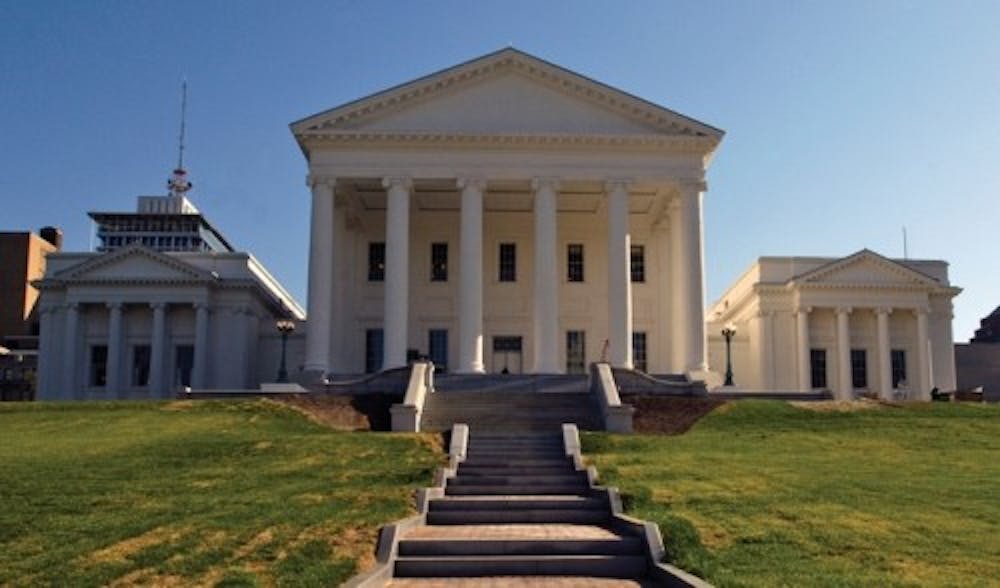A Quinnipiac University poll released Wednesday showed Gov. Terry McAuliffe’s approval rating at 44 percent, with 29 percent disapproval and a 2.7 percent margin of error.
Assistant Director at Quinnipiac Tim Malloy said voters viewed the governor favorably, but the message was still mixed.
“[T]here are a large number of Virginians undecided on his overall job performance,” Malloy said in a video issued by the Institute discussing the results.
Center for Politics spokesperson Geoff Skelley said McAuliffe faced similar issues during his campaign.
“[These results indicate] that his support levels are roughly in the same range of where they were when he was first elected,” Skelley said.
University Democrats President Katherine Bailey and College Republicans Chair Peter Finocchio, third and fourth-year College students respectively, had differing interpretations of the results of the poll.
“The polls are solid, and not worrisome, in my opinion,” Bailey said in an email. “His approval rating is 44%, which is not resounding support, but is certainly not bad news for the Governor either. It fits with the numbers that elected him.”
Finocchio expressed a different sentiment.
“He has proven himself to be an ineffective leader and, with the ongoing budget battle over Medicaid expansion, he has brought Washington-style politics to the Commonwealth,” Finnochio said in an email.
This past November, voters elected McAuliffe with approximately 48 percent of the vote in Virginia — the first time since 1965 a gubernatorial candidate did not win with a majority of the vote.
Malloy said it is still a “very early point in his administration,” and the Governor has room to go either up or down in the polls.
Sixty-nine percent of those who identify as Democrats in Virginia approve of McAuliffe, compared to 22 percent of Virginia Republicans. Democrats were overwhelmingly more optimistic about the direction of the McAuliffe administration than Republicans.
Roughly 57 percent of respondents described Virginia’s economy as either “good” or “excellent.” Skelley said McAuliffe is now in a “wait-and-see position,” since the legislature is polarized on the issue of Medicaid and has not passed a budget.
“[The budget] impacts basically every facet of the state when you’re talking about education, transportation, all areas that affect average Virginian lives,” Skelley said.
Ninety-six percent of Democrats, versus 41 percent of Republicans, favored raising the minimum wage from its current $7.25 an hour. Of those who favor raising the minimum wage, Democrats were more likely than Republicans to favor it be raised to more than $9.25 an hour, while the majority of Republican supporters favored setting the minimum wage at exactly $9.25 an hour.
A more recent Quinnipiac University poll released Thursday provided statistics on the candidates for the upcoming Senate race, showing Senator Mark Warner with a 15-point lead (46-31) over Republican frontrunner Ed Gillespie. Libertarian candidate Robert Sarvis was at 6 percent.
“My prediction is that over the next few months, as Ed continues to build his name recognition and millions more Virginians start to tune in to the campaigns, Ed will continue to rise in the polls,” Finocchio said. “Gillespie has a strategy to appeal to middle-of-the-road Virginians as well as the GOP base.”
Bailey expressed confidence in Warner’s ability to retain his lead.
“It’s important to note that Senator Warner is a very popular politician in Virginia, aside from Governor McAuliffe’s performance,” Bailey said. “The key with the Senate race will be getting voters to turn out.”







